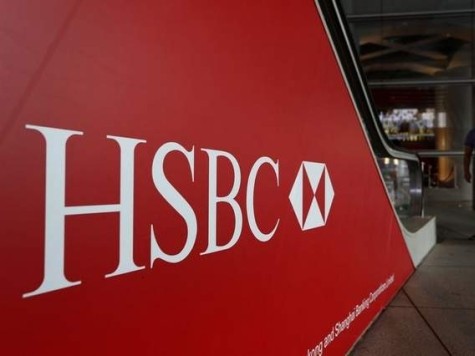
It is not often that I find myself in agreement with the editorial page of the New York Times, but I did on Wednesday. The Times criticized the $1.92 billion settlement agreed to by HSBC as “a dark day for the rule of law.” No bank executives, according to the LA Times, were charged. While $1.92 billion sounds like a lot, it is about 0.06% of the banks $2.6 trillion in assets. All banks stretch the limits and meaning of regulation. HSBC, the world’s third largest bank, and one that has been frequently warned, has simply been the most egregious. Without the rule of law, civil society devolves into either totalitarianism or anarchy.
The problem is not just the fact that no one at HSBC was jailed for criminal activities that make Jessie James, Willie Sutton and Bernie Madoff look like amateurs; it is that there seems to be collusion between the bad guys (the big banks) and government. The government imposes fines, which appear steep but are manageable, payable to the agencies charged with monitoring their behavior. It is symbiotic, crony capitalism. Banks simply look at fines as a regular cost of doing business. Agencies view them as a source of revenues. It is the public, the bank’s customers and shareholders who bear the cost. Society’s moral fiber becomes weakened.
What HSBC did was knowingly launder money for drug cartels in Mexico and Colombia, and provide banking services for countries known to harbor terrorists and for exporting terrorism. Both are in contradiction with stated American policy, but more importantly, both violate common rules of humanity. Mexican drug lords are not known for their niceties. According to the current issue of the Economist, 60,000 Mexicans, including 60 mayors, have been killed in the past six years. Bloomberg reports that the cartels used cash boxes precisely the dimensions of “tellers’ windows in HSBC’s Mexican branches.” Colombian narcotics dealers sell drugs in the U.S and then send the funds to Mexican banks to be converted into Colombian pesos. Additionally, the bank has provided banking services for countries like Cuba, Iran, Libya and Sudan. Stuart Gulliver, CEO of HSBC, in paying the fine and accepting responsibility, said “We are profoundly sorry” for what his bank did. Really?
American officials said that they were fearful of imposing punishment so severe that a bank could be destroyed in the process. Fed officials have little concern about smaller banks and the hedge fund industry, which they persist in trying to topple. But big banks remain in a class by themselves. Senator Carl Levin (D-MI) praised the settlement saying that it sends a “powerful wake-up call to multinational banks about the consequences of disregarding their anti-money-laundering obligations.” I suspect the real message is get big enough and you won’t have to worry. It seems beyond credibility that executives who so blatantly violated federal laws should be allowed to go free. While HSBC stock, at $51.68, remains below its all-time high price of $99.52 set in October 2007, it is up 36% year-to-date – not too shabby.
Despite the reluctance of the federal government to prosecute executives of very large banks who have violated more laws than Willie Sutton, we are living, according to the New York Times, in “the era of the star prosecutor in white-collar crime.” The paper noted that Preet Bharara, U. S. Attorney for Manhattan, was on the cover of Time magazine and got a shout-out from Bruce Springsteen during a recent concert, because of his decision to go after hedge funds for “insider trading.”
Certainly trading on inside information is wrong and deserves punishment, but in a world in which information flows like the Mississippi it is difficult to determine what is right and what is wrong. The real reason the Bharara’s of the world go after hedge fund managers is because of the widely spread notoriety of their incomes, which, admittedly, seem excessive at a time of persistent high unemployment. However, their incomes are paid by sophisticated investors. Nevertheless, even if their crimes prove true, their actions pale in comparison to the practices of banks like HSBC. The bank laundered $881 million from drug cartels like Sinaloa in Mexico and Norte del Valle in Colombia. Thousands of deaths have resulted from these cartels and millions of Americans have suffered the consequences of their products. The same bank violated sanctions imposed against regimes by our government. The sanctions were meant to contain terrorist activity. Are not these crimes far more damaging to our society than those highly publicized investigations into the possibility that some hedge funds traded on information that may or may not have been received legitimately?
What message about our society does all this send to our children and to all those who strive to play by the rules? You can escape punishment if you become an executive at a bank “too big to fail and jail,” As a prosecutor, you get shout-outs from rock stars if you indict a well known hedge fund manager, even if his innocent. If, as a hedge fund manager, you achieve enormous financial success you are automatically deemed a piranha to society, and thus a target for an over-eager prosecutor looking to add another notch to his holster. Firms too small to defend themselves are deemed small enough to fail and jail. It is a rotten message, but unfortunately one that captures the spirit of the downward spiral of our culture.

COMMENTS
Please let us know if you're having issues with commenting.